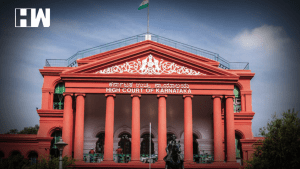Application of SC/ST Inviable If Not In Public: Karnataka HC

“Hurling of abuses is clearly not in a place of public view or a public place for the Act to be get attracted in the case at hand,” the Karnataka High Court added. Bengaluru: According to the High Court of Karnataka, offensive comments must be hurled in a public setting…
The post appeared first on .


“Hurling of abuses is clearly not in a place of public view or a public place for the Act to be get attracted in the case at hand,” the Karnataka High Court added.
Bengaluru: According to the High Court of Karnataka, offensive comments must be hurled in a public setting in order to establish an offense under the Scheduled Castes and Scheduled Tribes (Prevention of Atrocities) Act.
It dismissed a case against someone after discovering that the alleged abuse occurred in a building’s basement with just the victim and his co-workers present.
The alleged incident, which supposedly took place in 2020, Rithesh Pias reportedly made casteist comments against Mohan when he and the others were working in a building’s basement.
In his ruling on June 10, Justice M. Nagaprasanna stated: “Two factors will emerge from a reading of the aforesaid statements- one being that the building’s basement was not a place of public view and two, that the only people who claim to have been present were the complainants, Jayakumar R. Nair (employer) and the complainants’ co-workers.”
“Hurling of abuses is clearly not in a place of public view or a public place for the Act to be get attracted in the case at hand,” the court said.
The court concluded that the accused was hurling insults at Pias on the “shoulder of his employee (Johan).”
The court commented that the issue “cannot be brushed aside as it demonstrates a clear link in the chain of events. Therefore, the registration of crime itself suffers from want of bona fides.”
In the Sessions Court in Mangaluru where the case was delayed, apart from the Atrocities Act, Pias was charged under Section 323 (Voluntarily Causing Hurt) from the IPC.
The High Court concluded with final remarks that, “In the light of the afore-quoted facts, when the basic ingredients of the offence are missing, then permitting such proceedings to continue and to compel the petitioner to face the rigmarole of criminal trial will be totally unjustified, leading to abuse of the process of law.”
The post appeared first on HW News English.


